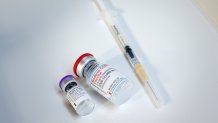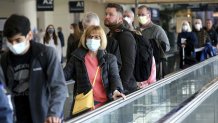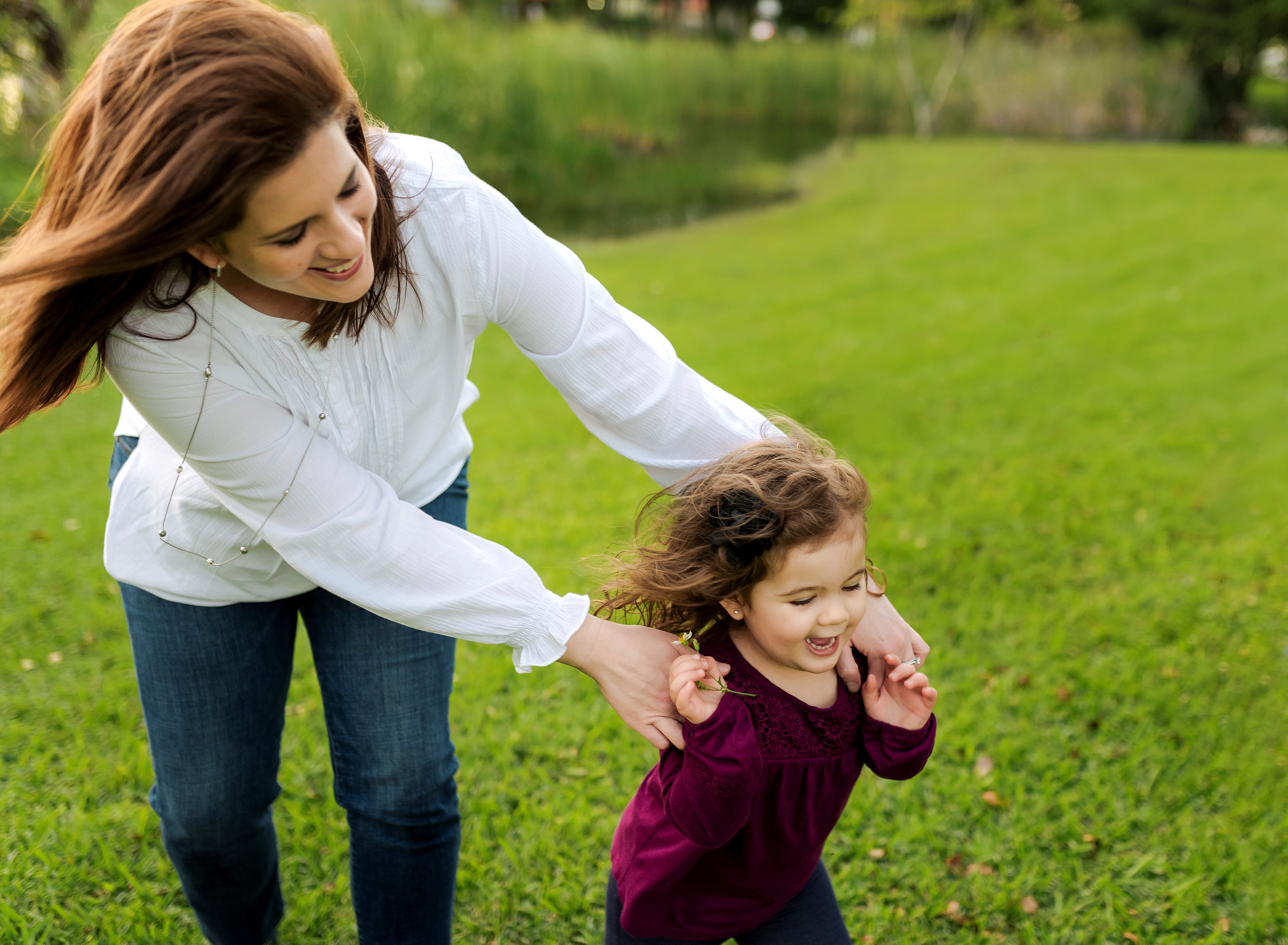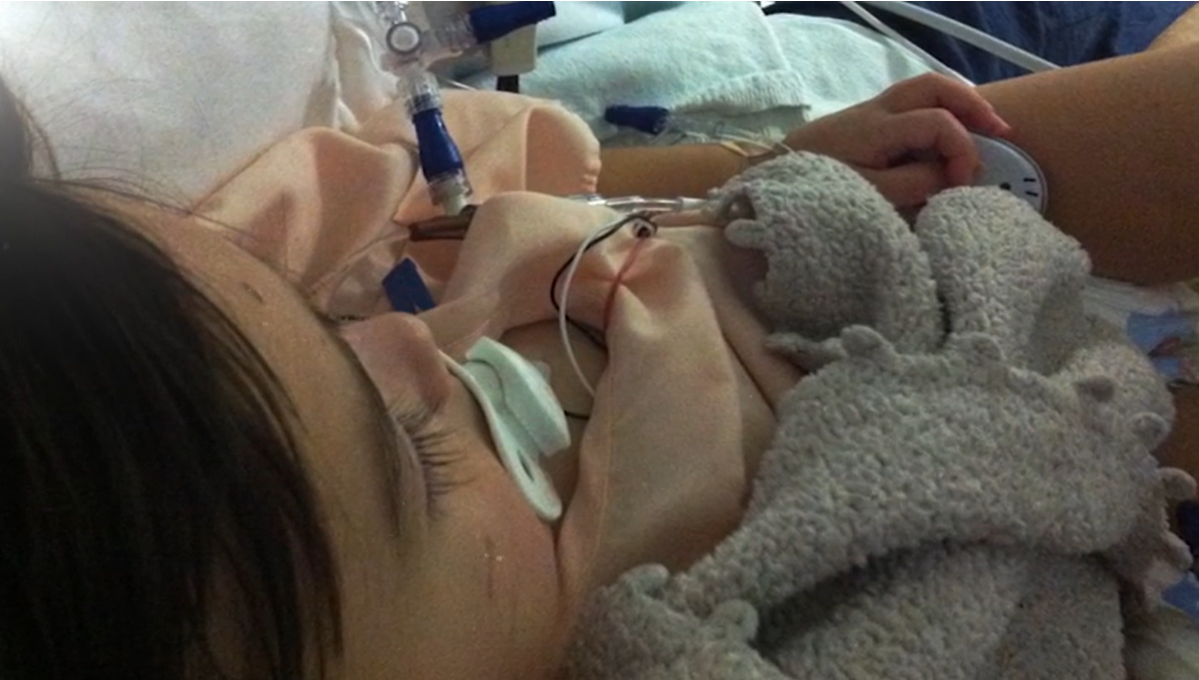What to Know
- Due to the uptick in the number of individuals infected by respiratory viruses, doctors worry that we could face a "tripledemic" this winter.
- A few ways you can stay safe this holiday season are by receiving vaccines, wearing masks on public transportation, and avoiding others when experiencing symptoms.
- Taking precautions against COVID, flu, and RSV helps to lower the risk of falling ill with those viruses.
As the holiday season approaches, many of use are planning to travel to celebrate with family. However, COVID is still lingering around, and there have been recent surges of flu and RSV (respiratory syncytial virus) cases. Due to the uptick in the number of individuals infected by these respiratory viruses, doctors worry that we could face a "tripledemic" this winter.
Here are some ways to keep you and your loved ones safe this holiday season.
COVID-19
Booster Vaccine
Get South Florida local news, weather forecasts and entertainment stories to your inbox. Sign up for NBC South Florida newsletters.
You can lower the risk of getting COVID by staying up to date with your vaccines. The CDC recommends that every eligible person should receive the COVID-19 booster. The updated bivalent booster protects against the original virus and Omicron variants.

Testing
Health
If you're experiencing COVID symptoms prior to a family gathering it's important to get tested in order to prevent infecting others. COVID tests are available for free or at low cost at many drug stores and pharmacies across the country. Click here for information on where to obtain one.
Isolation
If your test results come back positive, here are the CDC isolation guidelines you should follow:
- Isolate at home for at least 5 days because you are most infectious during this time. If you are unable to avoid contact with others during this period, wear a high quality mask such as the N95.
- If possible, use a separate bathroom and do not share personal household items with others.
- If your symptoms are improving or you had none, you can end isolation on day 6. If your symptoms are not improving, you should continue isolation until you see improvement. However, if you have moderate (difficulty breathing) or severe (hospitalization) symptoms you must isolate until day 10.
- Until at least day 11 wear a high quality mask when indoors around others at home or in public. Also, avoid people who are high risk (elderly or immunocompromised) for severe illness if infected.
Alert the people who you were in contact with so that they can take the proper precautions and monitor themselves.
Travel
Although masks are no longer required on indoor public transportation and at transportation hubs, the CDC recommends that people wear masks in these settings.
You should not travel if you tested positive for COVID-19 and are recommended to isolate.
If your isolation period has ended but still need to continue wearing a mask per CDC guidance or if you were exposed to someone with COVID-19 within 10 days of your travel date you should wear a high quality mask. Another option is to travel using a private vehicle to reduce the risk of spreading COVID to others.

Flu
Flu Vaccine
Individuals who are six months and older should get a flu shot every season, it protects against infection and reduces the severity of illness if you were to get the flu.
Preventative Measures
According to the CDC, here are some preventative actions you can take in order to stop the spread of germs:
- Avoid close contact with people who are sick.
- Wash your hands with soap and water often. Use an alcohol based hand rub like hand sanitizer if soap and water are not available to you.
- Cover coughs and sneezes with a tissue, and dispose of the tissue after using it.
What to do if Experiencing Symptoms
If you are experiencing flu symptoms avoid holiday gatherings, you should limit contact with others especially those who are at higher risk of flu complications. It's difficult to stay away from family especially during the holidays, but it's necessary to stay home, rest and recover before being around loved ones.
The CDC recommends staying home for at least 24 hours after your fever is gone. If you must leave home to get necessities or medical care wear a face mask or cover coughs and sneezes with a tissue. Your fever should go away without the use of fever-reducing medicines. Until then you should avoid gatherings.
RSV
There has been an increase in RSV hospitalizations causing a strain on hospitals across the U.S. Most people who get RSV will likely experience mild illness, however young children and older adults are at risk of severe infection and possible death.
Prevention
The CDC recommends four steps to prevent the spread of RSV. If you have cold-like symptoms specifically you should do the following:
- Use a tissue to cover your coughs and sneezes.
- Wash your hands often with soap and water for at least 20 seconds.
- Avoid close contact with others, this includes kissing and shaking hands.
- Clean frequently touched surfaces such as phones and doorknobs.
People with cold-like symptoms should not interact with children at high risk for RSV. However, if this is unavoidable you should take extra care and follow the above steps when interacting with this group of children.
Parents with children who are at high risk can reduce the likeliness of infection by doing the following:
- Avoid close contact with sick people.
- Wash the child's hands often with soap and water and for at least 20 seconds.
- Avoid touching their face without washing your hands.
- Limit the time they spend in potentially contagious settings during periods of increased RSV activity.
Treatment
There currently is no specific treatment for RSV, but the CDC provides steps you can take to relieve symptoms.
- Use over-the-counter pain relievers and fever reducers to manage fever and pain.
- Drink fluids to prevent dehydration.
- If your child is experiencing symptoms, consult your healthcare provider before giving your child otc cold medicine.
It may be tiring keeping up with different guidelines for various respiratory viruses but, taking these precautions can help protect your loved ones this holiday season and allow for a safe and enjoyable gatherings.



